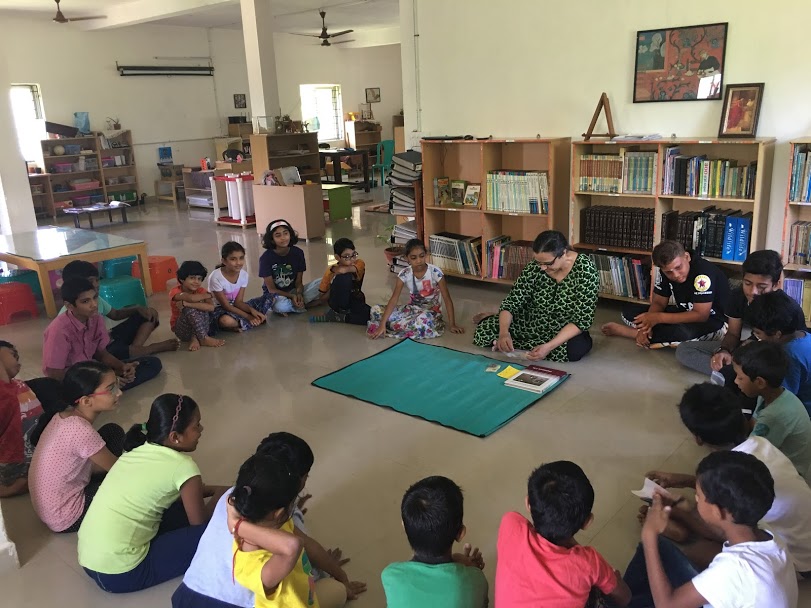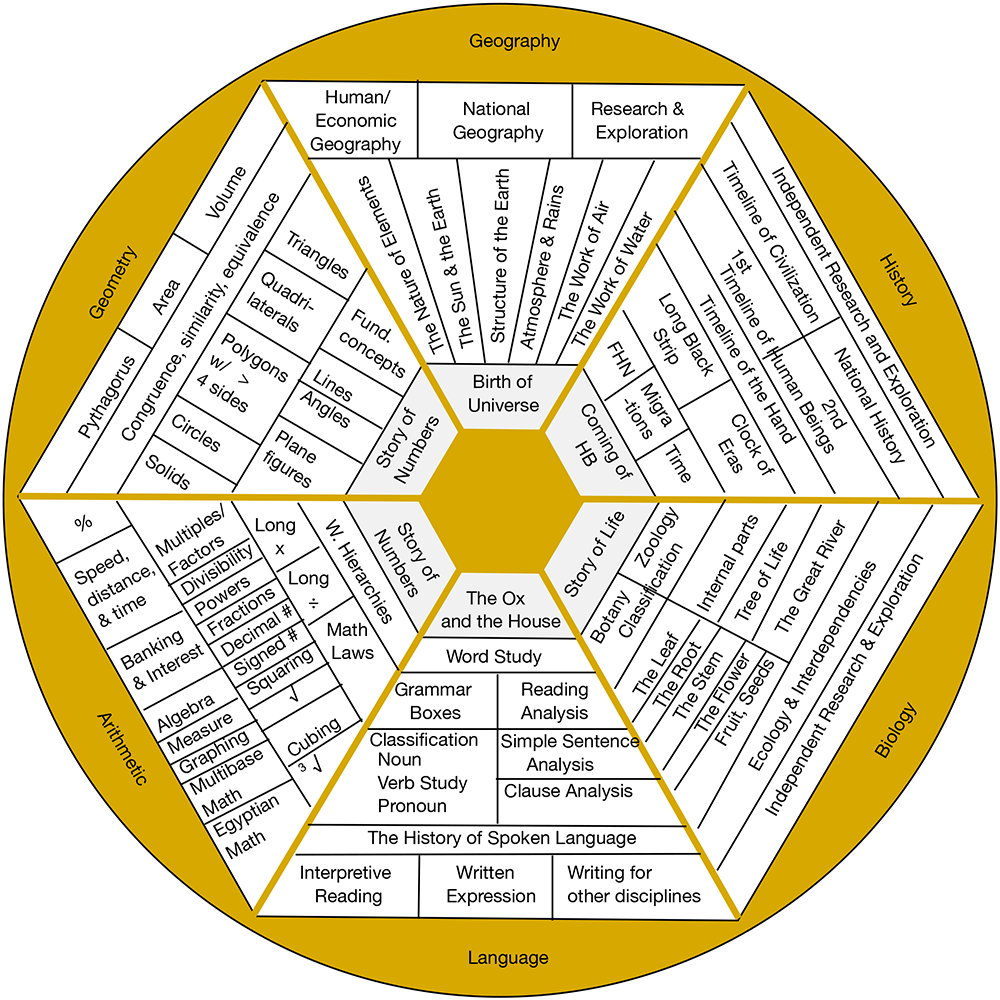ELEMENTARY PROGRAM - 6 TO 12 YEARS
“Help me think.”
What sets Montessori apart in the Elementary years—ages 6 – 12—is the individually paced curriculum that challenges children academically and safeguards their well-being and sense of self. Engaging as contributing members of a respectful community, they learn to question, think critically, and take responsibility for their own learning—skills that will support them in later education and in life.
OUR MISSION
“To kindle the reasoning mind of elementary children, providing ample opportunities to these voracious intellectual gatherers, helping them arrive at defining their societal role while understanding interdependence in the world.”
The Environment
In a Montessori Elementary classroom, students work individually or in small groups, at tables or on mats on the floor.Natural lighting, soft colors, and uncluttered spaces set the stage for activity that is focused and calm. Learning materials are arranged on accessible shelves according to curricular area, fostering independence as students go about their work. Everything is where it is supposed to be, conveying a sense of harmony and order that both comforts and inspires.
A CLASSROOM DESIGNED TO NURTURE IMAGINATION & REASON
Elementary age students are naturally curious and have a strong internal drive to discover how our world works. They may ask, “How does a fish breathe under water?” “What number comes after a trillion?” “What causes a volcano to erupt?” Instead of simply giving them the correct answers, Montessori elementary teachers ask the right questions; they tell stories to inspire the children’s imagination and tantalize them to explore on their own to find out more: about volcanoes and dinosaurs and Monet and gladiators and poppies and skateboards and butter churning and cheetahs and – there is no limit!Driven by their passions, the children are open to the input from the teacher that refines their reading, writing, reasoning, and research skills. Designing our elementary program around the children’s natural cognitive abilities means that our focus is less on the facts and concepts we teach and more on what the children learn and how they learn it.
MULTI-AGE LEARNING
Multi-age groupings of children aged 6 – 9 and 9 –12 provide a heterogeneous mix in which children can collaborate and socialize. These inter-age relationships strengthen the entire community.Older children are seen as role models within the community. They support the growth and development of younger children through socialization, assisting with new work, or teaching skills they have mastered themselves. They can also work with younger students in areas of the curriculum in which they themselves may need more practice, without stigma.Younger children follow the example set by the older students, and have peers to work with in areas of the curriculum in which they may be more advanced. This multi-age community provides opportunities for all individuals to learn from each other, at times leading, sharing, or serving as role models. It also develops an appreciation of differences.

What do children learn?

Set in the Montessori way of scope and sequence, we provide abundant literature and cultural learning opportunities that inspire love for each of these languages and the context to appreciate the need of learning it more for higher order thinking and creative expression rather than mere functionality.
Math
The ideas of number concepts, place value, numerals, and related quantities are reinforced and expanded upon within the Elementary program. Newfound purposes for familiar math materials provide children with the means to consider number concepts, mathematical operations, and more complex functions, helping to expand advanced mathematical knowledge and understanding.
Language
Reading and writing are integral to all subjects in Montessori Elementary, as children express their interests and satisfy their curiosity. Students master conventions with thorough studies of grammar, spelling, and mechanics. They produce final copies with careful penmanship. They read, analyse, think critically, and compare and contrast literature to support personal opinion and perspective. Using these reading and writing skills, they present ideas through formal and informal presentations.
Cultural studies
Cultural studies are interdisciplinary and integrate zoology, botany, anthropology, geography, geology, physical and life sciences, and anthropology. Through these lessons, children explore the interconnectedness of all living things. Additionally, in-depth studies of history, physical and political world geography, civics, economics, peace and justice, the arts, world language, and physical education are introduced.
Science and Social Studies
Interdisciplinary and integrated studies of geology, geography, physical and life sciences, anthropology, and history are built around “Great Lessons,” a series of dramatic stories that explore the origins of the universe, our planet, and the continuous development of human advancement. The laws of physics and chemistry reveal the interdependency of all living things. Beginning with a study of civilization, students explore the contributions of history and what it means to be a responsible citizen and to seek ways to make the world a better, more peaceful place. Besides Academics, children have regular classes as and when arranged, based on age appropriateness in Team Sports, Carpentry, Natural dye Printing, Weaving, Art and Craft, Culinary and baking, Pottery, Tailoring and Embroidery, Storytelling and theatre.All subjects will be intertwined in art, music, theatre and drama, going outs and scientifically traced to its development in history. Children regularly go out on educational trips, and have exposure sessions on life skills, wildlife, farm living, music, dance and drama.To further accentuate the home learning, interesting follow up work and home projects where family groups can be involved are given to the children. Farm visits and work on the farm is possible due to our parent organisation - Relief Foundation’s rural Montessori Resource centre in Narasingapuram and Jamunamarathur.

